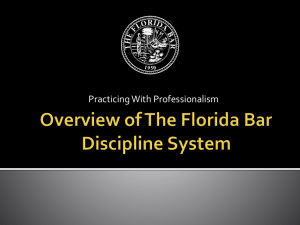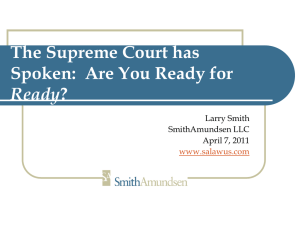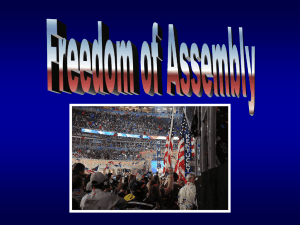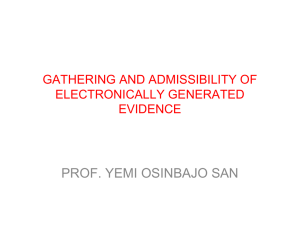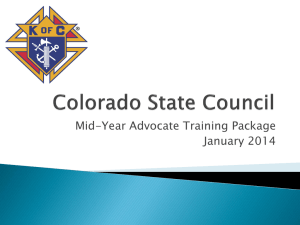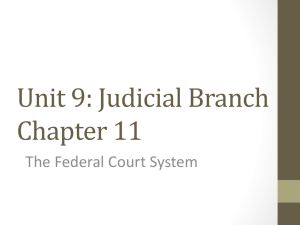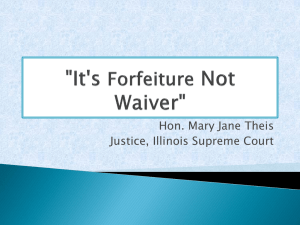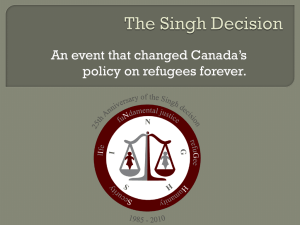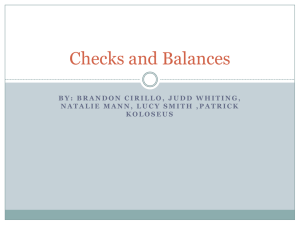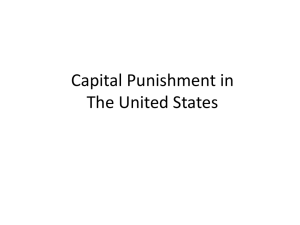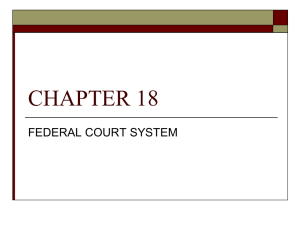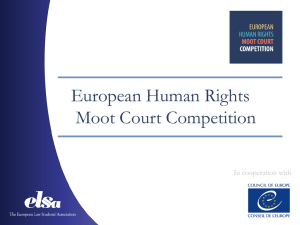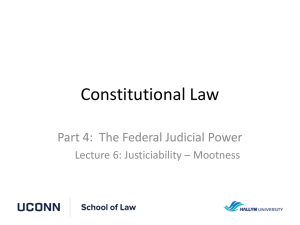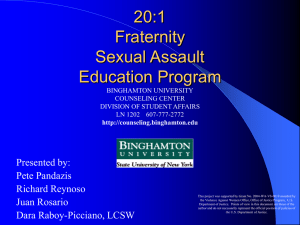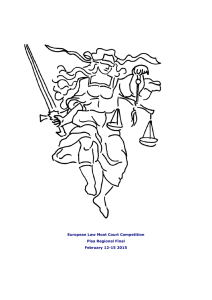Supreme Court Walkaround
advertisement
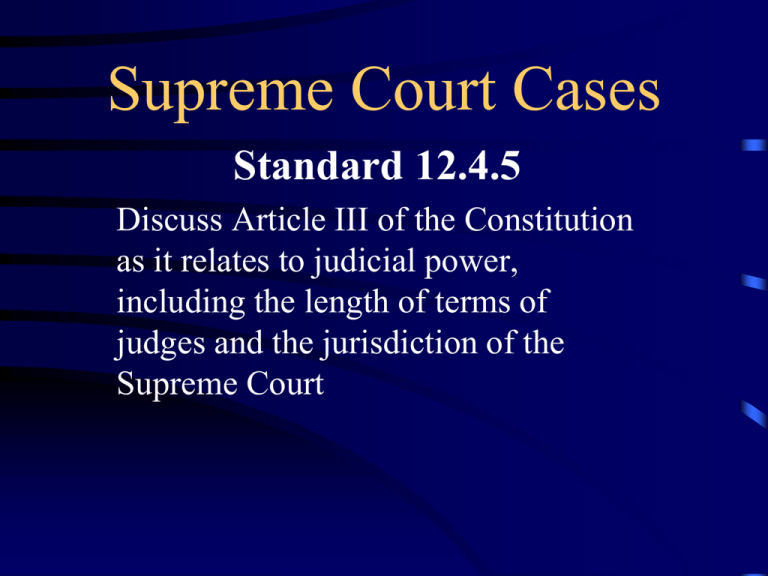
Supreme Court Cases Standard 12.4.5 Discuss Article III of the Constitution as it relates to judicial power, including the length of terms of judges and the jurisdiction of the Supreme Court Supreme Court Case #1 A former student in a major school system claimed that he had received an inferior education in the system’s segregated schools. The school system has since been desegregated Supreme Court Cases Case #1 Rejected; Moot or dead Question Supreme Court Case #2 In 1987 the Court was asked to decide if school officials had the power to censure material printed in student produced school newspapers. Supreme Court Cases Case #2 Accepted; Protection of valuable legal rights Supreme Court Case #3 John Jones was convicted in municipal court and tried to appeal to the Supreme Court on the grounds that he was subjected to an illegal search. Supreme Court Cases Case #3 Rejected; Hasn’t exhausted all the other avenues of appeal Supreme Court Case #4 A student admission to an university in California was denied the reduced tuition rate granted for residency in the state. The student asked the Supreme Court to verify his residency in California. Supreme Court Cases Case #4 Rejected; Question of fact not law Supreme Court Case #5 In 1981, J.W. asked the Supreme Court to rule whether he was entitled to unemployment compensation. J.W. had worked for a machinery company and quit when his old job was eliminated, and he was transferred to making gun turrets for tanks. He claimed religious convictions prevented him from working on war materials Supreme Court Cases Case #5 Accepted; Person bringing suit must be personally and substantially injured Supreme Court Case #6 A Greek-letter fraternity asked the Supreme Court to review requirements by the college trustees that the fraternity chapter set deadlines for removing racial and religious requirements for membership or lose campus privileges. Supreme Court Cases Case #6 Rejected; Trivial question Supreme Court Case #7 In 1980, President Carter withdrew the United States from competition in the Olympics in protest against the Soviet invasion of Afghanistan. The next year, disgruntled athletes appealed to the Supreme Court for redress against a decision that denied them the right to earn a gold medal. Supreme Court Cases Case #7 Rejected; Could be denied as moot, political, or perhaps even a trivial question Supreme Court Case #8 In 1943, Dr. Wilder Tileston tried to challenge the Supreme Court’s prohibition on the use of birth control devices. Supreme Court Cases Case #8 Rejected; Not personally injured by the law Supreme Court Case #9 John Jones appealed to the Supreme Court to overturn his conviction on the grounds that his trial violated his Fifth Amendment rights. Supreme Court Cases Case #9 Rejected; Too broad a question Supreme Court Case #10 The Court was asked in 1976 to rule whether Congress could place limits on amounts of money people gave to candidates running for office. Supreme Court Cases Case #10 Accepted; Substantial federal issue Supreme Court Case #11 A group of federal employees asked the Supreme Court in 1939 to rule on the constitutionality of a law which forbids members of Civil Service to participate in political campaigns. Supreme Court Cases Case #11 Rejected; No case of controversy Supreme Court Case #12 A group of blacks in an urban congressional district appealed to the Supreme Court to remove their highly prejudiced white congressman for failure to respond to their concerns. Supreme Court Cases Case #12 Rejected; Voters have another remedy for the situation by voting the person out Supreme Court Case #13 Lawyers for a New Jersey teenager, TLO, in 1987 asked the Supreme Court to rule whether her suspension resulting from a questionable search of her purse was legal. The lower courts had upheld the suspension as legal. Supreme Court Cases Case #13 Accepted; Person bringing suit must be personally and substantially injured Supreme Court Case #14 A St. Louis casting company connected his business to a newlybuilt sewer system and then challenged the validity of the law that permitted a tax assessment on users of the sewer system Supreme Court Cases Case #14 Rejected; Cannot use a benefit and challenge its validity Supreme Court Case #15 The Supreme Court was asked in 1962 to rule whether the policy that congressional districts must have population equity based on the census figures, could be enforced. Supreme Court Cases Case #15 Accepted; Protection of valuable legal rights


